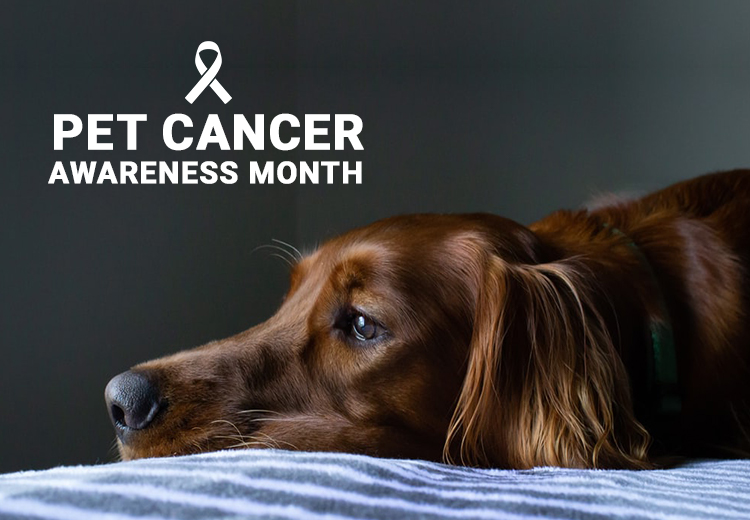
The month of November is designated as National Pet Cancer Awareness Month. Cancer is the largest disease-related cause of death for domestic dogs and cats in the United States, so spread the word this month to help educate pet owners on how to best safeguard their furry family members.
Cancer can be caused by a variety of environmental and genetic variables, and there are numerous forms of cancer that vary in their aggressiveness and frequency.
Cancer can strike any dog at any age, however, some breeds are more genetically prone. According to the Veterinary Cancer Society, Golden Retrievers, German Shepherd Dogs, and Rottweilers have a 70 to 80 percent probability of contracting cancer over their lifetime.
Most studies report that up to half of all dogs over the age of ten may get cancer. Cancer affects one out of every four dogs in their lifetime, and it is the greatest cause of mortality in dogs.
Cancer is clearly one of the most serious risks to our canine companions’ health and well-being, which is why Pet Cancer Awareness Month is so important. As responsible pet parents, we must be aware of cancer-fighting strategies and teach others how to do the same.
As always, consult with your veterinarian. They can provide you with a wealth of knowledge and guidance to assist you in making wise decisions and keeping your pets safe.
Here’s what you should know about Pet Cancer Awareness Month.
Take Care of Diet
Many dog owners feed their dogs the same kibble every day for the rest of their lives. According to new studies and research, this may not be the ideal dietary option for our dogs’ health, and there is also a link between what our dogs consume and cancer.
Traditional dog food contains grains that can be tainted with chemicals that cause cancer, such as aflatoxin B1. Furthermore, carbohydrates from grains and corn are turned in the body into sugar, which fuels cancer cells.
Even healthy meals, such as fresh vegetables and fruits, might contain carcinogenic pesticides or herbicides. It’s essential to consider not only what your dog eats, but also where the food comes from and how it’s prepared.
On the other hand, there are some meals high in vitamins, minerals, and antioxidants that can improve dogs’ immune systems, prevent cancer, and aid in cancer therapy. Many veterinarians recommend special meals for cancer-stricken dogs or Vitamin Supplements Treatments .
Do some study, consult your veterinarian, and think about creating your dog’s food from scratch. Any adjustments to your dog’s diet should be discussed with your veterinarian first.
Discover the Different Types of Cancer





